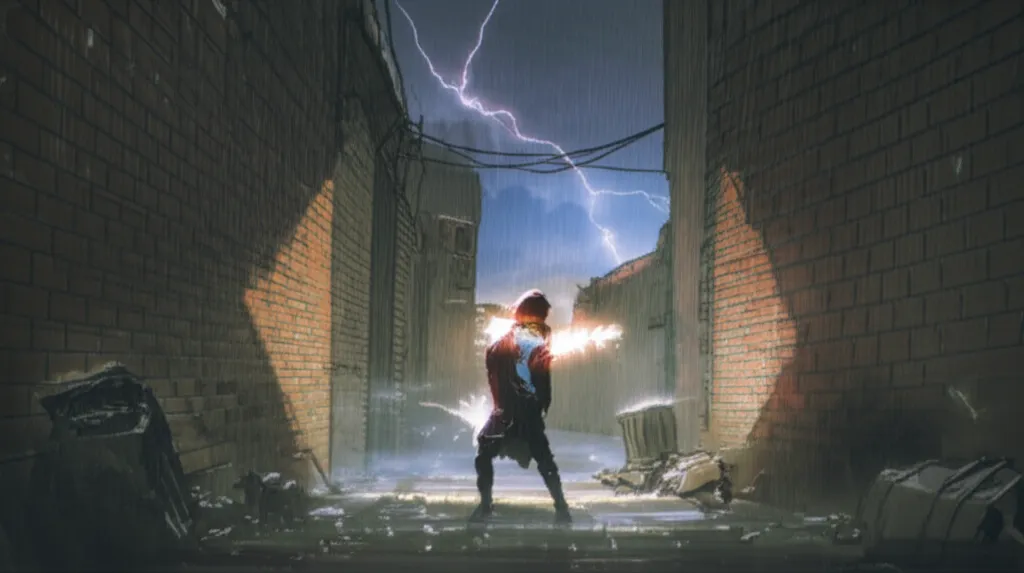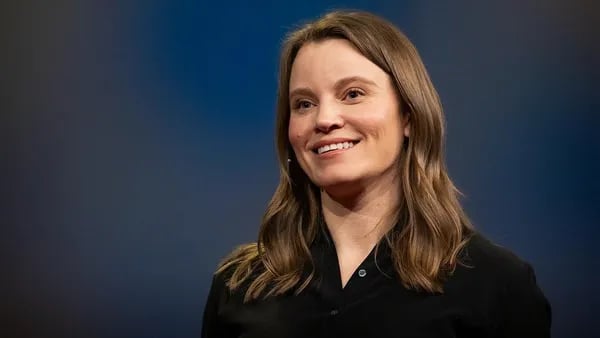Ever felt as if you’re watching normal life through glass—so close you can see the details, but completely unreachable? Years ago, that's exactly where I found myself, endlessly stuck in a loop of addiction, longing for even a slice of the freedom that others seemed to enjoy without effort. The real curveball? It wasn’t intelligence or iron will that got me unstuck; it was harnessing desperation to discover my own agency—one awkward, risky, and totally imperfect step at a time. I want to show you how the most ordinary ‘hidden doors’ can become escape routes into a far more expansive life.
When Desperation Becomes a Superpower (Even If You’d Never Want It)
Five years ago, you might have found yourself in a place you never imagined—trapped in a cycle of addiction, waking up each day with only one goal: to use, to escape, to survive. I know this feeling intimately. Addiction stripped away every illusion of control I had. My life shrank to a single, desperate point, and for months, I lived in a fog, barely conscious, with memories scattered and broken. This is where the story of the gift of desperation recovery begins.
In addiction recovery circles, there’s a phrase you hear often: the gift of desperation. It sounds strange at first. Who would ever wish for desperation? But when you hit rock bottom—when you’ve lost your job, your friends, your health, maybe even your sense of self—something unexpected can happen. With nothing left to lose, fear loses its grip on you. The old rules, the old pride, the old stories about who you are and what you can’t do—they fall away. You’re left with raw, honest need. And that need can become a superpower.
The ‘Nothing Left to Lose’ Effect
When you’re desperate, you stop worrying about embarrassment or failure. You say yes to things you once thought were beneath you or beyond you. You try new approaches, reach out to strangers, and ask for help in ways you never would have before. This is the heart of personal agency recovery journey: the ability to see and act on the hidden doors in the walls of your life.
For all of the freedom that addiction took from me, I think it actually gave me an unnatural advantage when it came to cultivating agency.
Desperation forced me to be radically authentic. I had to admit I was lost, that I didn’t have the answers, and that I needed help. I had to stand up in front of a room full of strangers and say, “My name is Kate, and I’m a drug addict.” I had to let go of pride and accept support, even when it felt humiliating. This honesty, this willingness to be vulnerable, is what sped up my nurturing personal growth recovery.
Radical Authenticity: The Unexpected Shortcut
When you’re desperate, you can’t afford to pretend anymore. You admit confusion. You ask for help. You let others see your struggle. And in that process, you find connection—real, deep, human connection. The walls you built to protect yourself come down, and suddenly, you’re not alone. This is where identity reconstruction recovery begins. You start to build a new sense of self, one that’s not based on hiding or pretending, but on honesty and openness.
Research in strengths-based recovery models shows that personal agency—the belief that you can make choices and act on them—is fundamental to transformation. Agency doesn’t mean you’re never afraid or that you always know what to do. It means you recognize the degrees of freedom you do have, even when they seem small. In moments of desperation, those small freedoms become lifelines.
- Addiction recovery often starts with the total loss of control, but it’s in that loss that you discover the power to choose, even if the choices are hard.
- The gift of desperation recovery is the willingness to do whatever it takes, to embarrass yourself, to try new things, and to keep moving forward.
- Personal agency recovery journey is about finding the hidden doors—opportunities you never saw before because you were too afraid or too proud to look.
- Nurturing personal growth recovery means embracing vulnerability as a strength, not a weakness.
- Identity reconstruction recovery is the process of building a new self, one honest step at a time.
You may never wish for desperation, but if you find yourself there, know that it can be the beginning of something powerful. When you have nothing left to lose, you gain the freedom to try, to fail, and to grow. And in that space, agency is born—not in comfort, but in the willingness to change, no matter what it takes.

Spotting (and Opening) the Hidden Doors: Small Tactics, Big Leaps
When you’re desperate for change, you start seeing “hidden doors” everywhere—opportunities that most people miss. The truth is, personal agency development isn’t a mysterious gift. It’s a skill you can build, step by step, through small tactics that lead to big leaps. If I could go back in time five years and tell her that I would one day experience that kind of freedom—to not have to hide things, to do whatever I feel like with my afternoons...I would not have believed it. But it all started with learning to spot and open those doors, even when I didn’t feel ready.
Assume Everything Can Be Learned
One of the most powerful shifts you can make is to assume everything is learnable. Optimism, connection, curiosity—these aren’t fixed traits. They’re skills. For years, I thought I just wasn’t the kind of person who could connect easily or bounce back from setbacks. But desperation forced me to try, and I discovered that you can learn almost anything if you’re willing to put in the effort.
When I struggled to connect with my husband, I didn’t just accept it as a flaw. I treated it like a puzzle to solve. I read, I asked questions, I experimented. The same goes for learning optimism or curiosity. If you approach these qualities with a growth mindset personal agency, you’ll be amazed at how much you can change.
Go for Volume: The Power of Repetition and Exposure
Early on, I realized that waiting for the “perfect” opportunity was holding me back. So I went for volume. I reached out to dozens of people, even when I had no idea how it might help me. Most of the connections I’ve made in the last four years came from this scattershot approach. It didn’t matter if I could see the benefit immediately. The point was to keep moving, keep trying, and let the numbers work in my favor.
- Apply for roles you’re not sure you’ll get.
- Start conversations even if you feel awkward.
- Say yes to projects that scare you a little.
This approach is at the heart of learning from failure. Each attempt is a chance to learn, adjust, and try again. The more doors you knock on, the more likely you are to find one that opens.
Welcome Rejection: Input for the Unreasonable
Most of us spend our lives avoiding rejection. But if you only aim for things you’re sure you’ll get, you’re missing out on the wild, unreasonable opportunities that spark real personal growth. Sometimes, you have to put yourself out there in ways that feel almost delusional. I once told someone, “I’m thinking about starting an organization much like your own. Can I run yours instead?” It sounded crazy, but sometimes crazy works.
By courting rejection, you stretch your sense of what’s possible. You learn that “no” isn’t the end—it’s just feedback. And every “no” brings you closer to a “yes” that could change everything.
Actively Seek Real Feedback
Here’s a secret: self-efficacy grows fastest when you’re willing to admit what you don’t know. After my brain injury, I couldn’t fake understanding anymore. I got good at saying, “I don’t understand—can you explain?” Instead of pretending, I asked for help. People love to explain things, and those conversations became the fastest way to learn.
But I didn’t stop there. I set up anonymous feedback channels—sometimes linked to my Twitter profile—so people could tell me what I was missing. Honest feedback, even when it stings, is exhilarating. It’s a mirror that shows you what you can’t see on your own. This is how you uncover the blind spots that hold you back and accelerate your personal agency development.
Practical Tactics for Growth Mindset Personal Agency
- Assume everything is learnable. Treat traits like optimism or connection as skills, not destiny.
- Go for volume. The more you try, the more you learn—and the more doors you find.
- Welcome rejection. Input for the unreasonable; sometimes the wildest ideas start the best chapters.
- Seek real feedback. Ask for honest input, even anonymously, to reveal your blind spots.
Personal agency isn’t innate. It’s built through experimentation, feedback, and a willingness to embrace failure. When you shift your mindset toward learning and risk-taking, you start spotting—and opening—the hidden doors that lead to your next big leap.

Wild Card: Desperation Isn’t Just for Rock Bottom—Harness It Anywhere
When you think about desperation, you might picture someone at their absolute lowest—rock bottom, with nowhere to go but up. But here’s the truth: you don’t have to ruin your life and then rebuild it in order to learn to be more agent. Desperation isn’t just a last resort; it’s a wild card you can play at any time, in any situation. Whether you’re facing a global crisis or a personal struggle, you can harness that urgent energy and turn it into something powerful. This is the heart of personal agency—the ability to act, to innovate, and to change, no matter where you start.
Think back to the early days of the COVID-19 pandemic. The world was desperate for solutions, especially in places where resources were scarce. I remember watching, along with friends, as low-income countries struggled to get vaccines because they didn’t have the cold storage needed. That sense of urgency, that shared desperation, became the fuel for something new. We didn’t wait for things to get worse. Instead, we created a company focused on developing a shelf-stable vaccine—one that didn’t need special storage. Driven by that need, we moved into clinical trials in under six months, faster than any startup in history. This is the impact COVID-19 personal agency can have when you let desperation drive innovation.
You don’t have to wait for a crisis of that scale to feel desperate enough to act. Sometimes, the urgency comes from something much closer to home. I felt a different kind of desperation early in my marriage, when it seemed like there was an invisible wall between me and my partner. It wasn’t a disaster, but it was a friction I couldn’t ignore. That discomfort pushed me to learn new ways to resolve emotional barriers and connect more deeply. The lesson? Desperation can be redirected into innovation—not just in science or business, but in your own relationships and personal growth.
This is where innovative approaches to addiction recovery and behavioral change come into play. You don’t need to hit your lowest point to start making changes. Sometimes, all you need is a spark—a moment of discomfort or a flash of inspiration. That’s enough to set you on a new path. The key is to recognize that feeling of urgency, and instead of letting it overwhelm you, use it as a launchpad for action. Agency in action isn’t about waiting for the worst to happen; it’s about seeing every challenge as an opportunity to grow.
One of the most powerful ways to learn agency is by watching others. During the vaccine project, I was surrounded by people who didn’t wait for permission to act. They saw a need, felt the urgency, and moved forward with determination. Watching highly agentic individuals at close range can teach you as much as any personal experience. You see firsthand how agency works—not as something innate, but as a skill you can develop. Sometimes, just witnessing someone else’s courage and creativity is enough to awaken your own.
So, if you’re waiting for rock bottom to make a change, stop. You don’t need to lose everything to find your agency. Look for the small desperations—the daily frustrations, the global events, the moments of discomfort that nudge you toward something better. Let them be your wild card. Let them drive you to innovate, to connect, to change. Remember, “You don’t need to ruin your life and then rebuild it in order to learn to be more agent.” Agency is always within reach, waiting for you to claim it, no matter where you are or what you’re facing.
In the end, the hidden doors to transformation aren’t locked behind disaster. They’re everywhere, waiting for you to notice the urgency and walk through. Harness desperation wherever you find it, and you’ll discover just how much impact your personal agency can have—on your life, and on the world.




